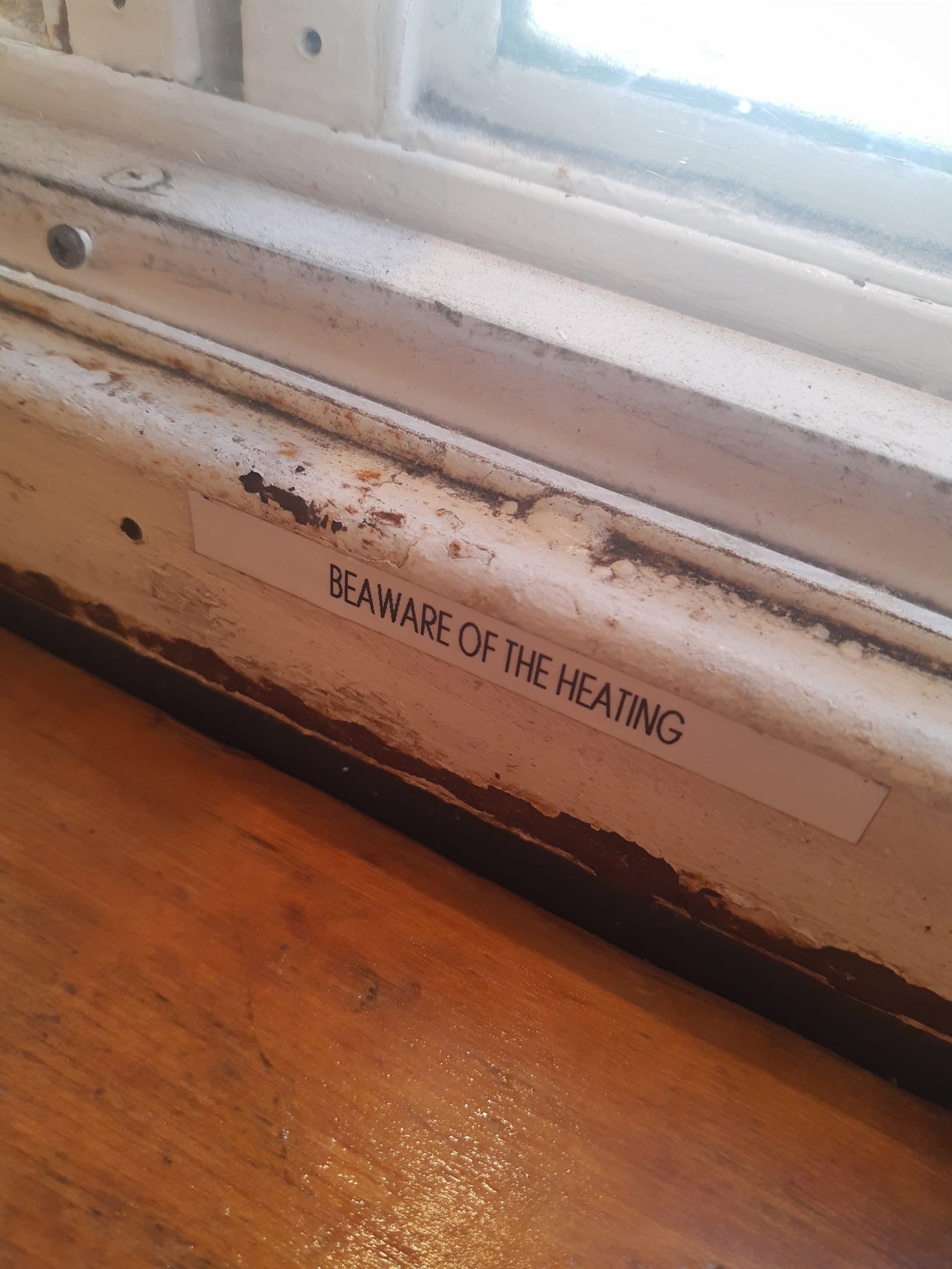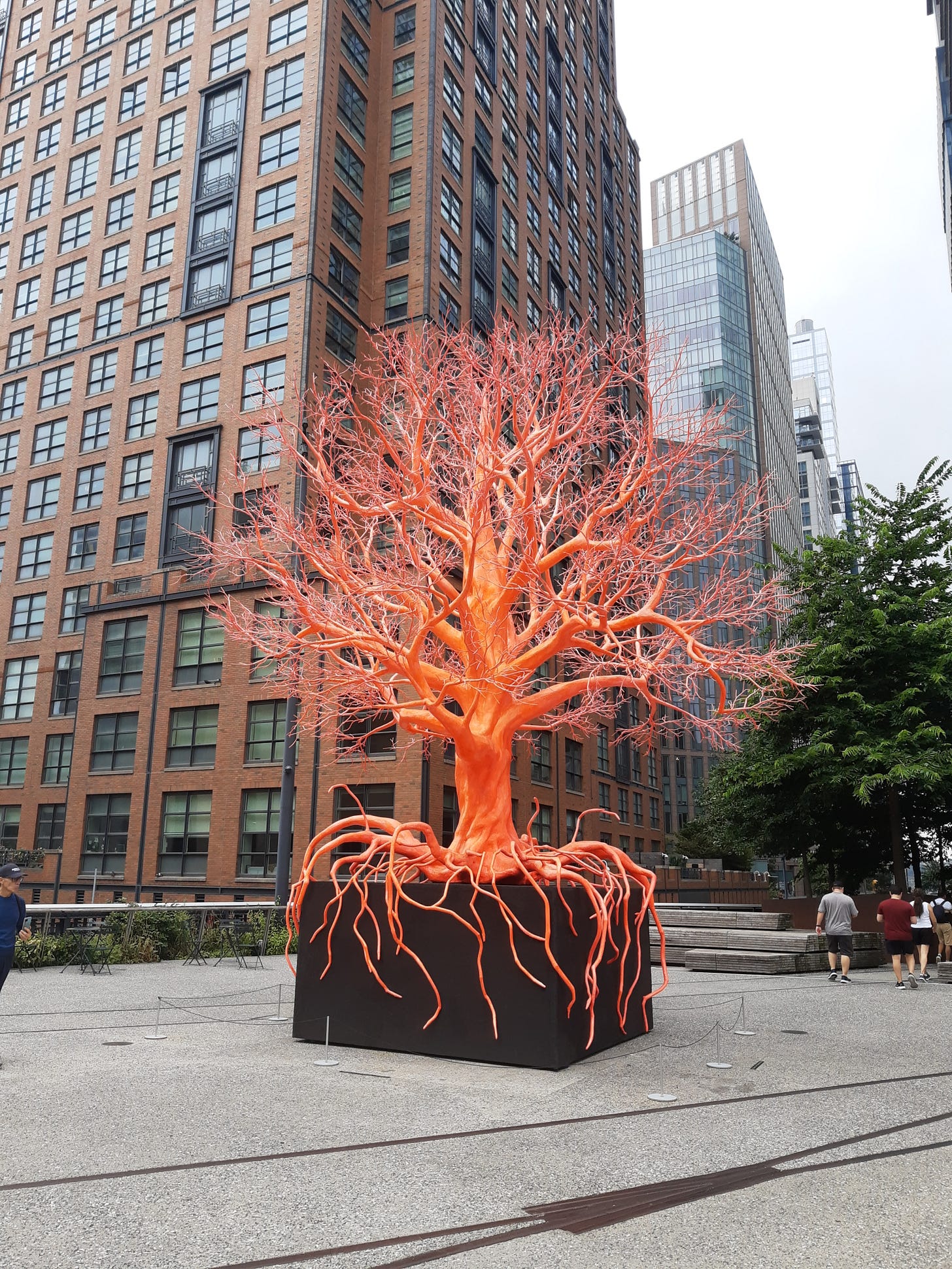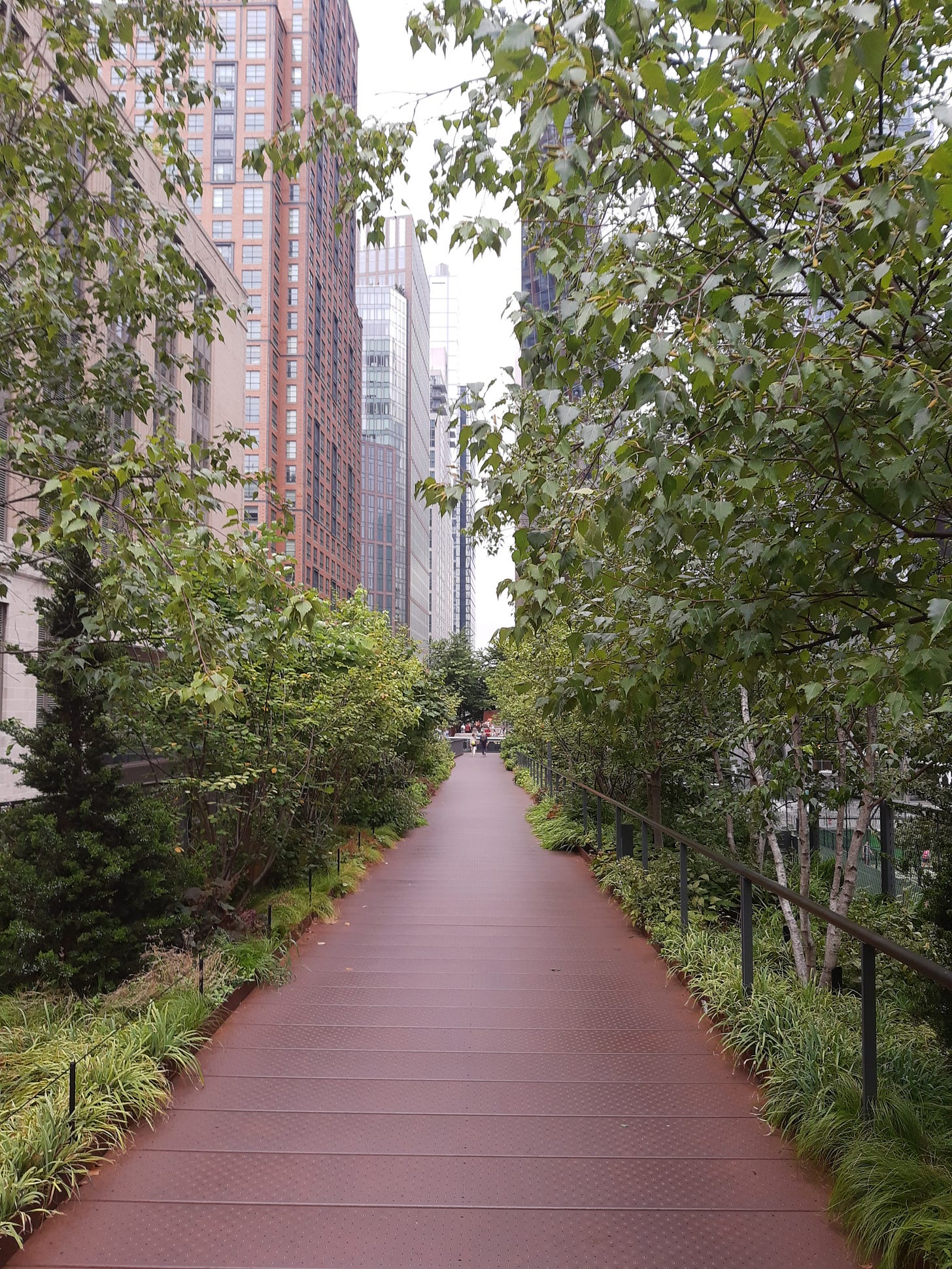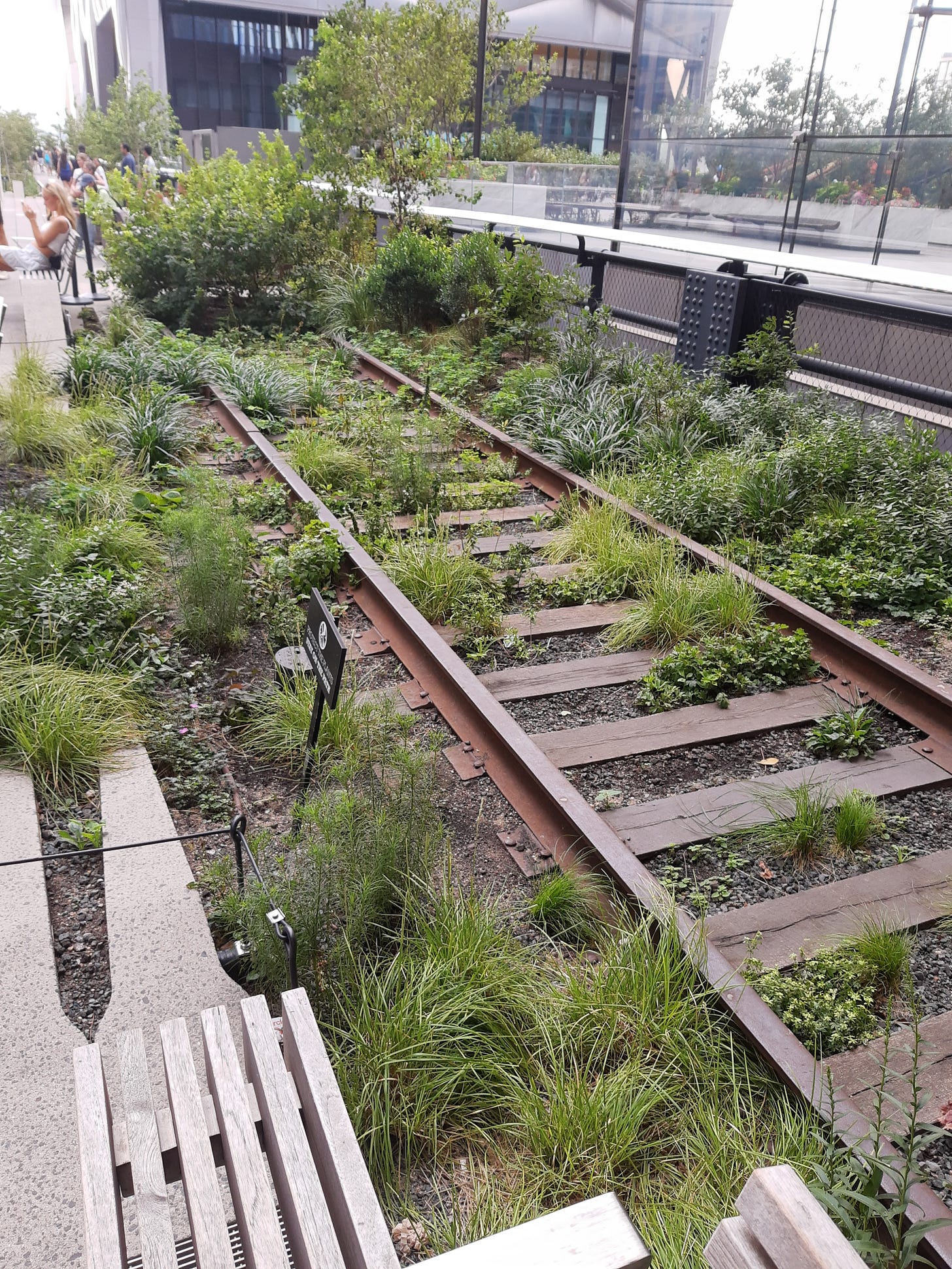Is it a heatwave if it never ends?
A summer of celebration, crushing heat, and split consciousness
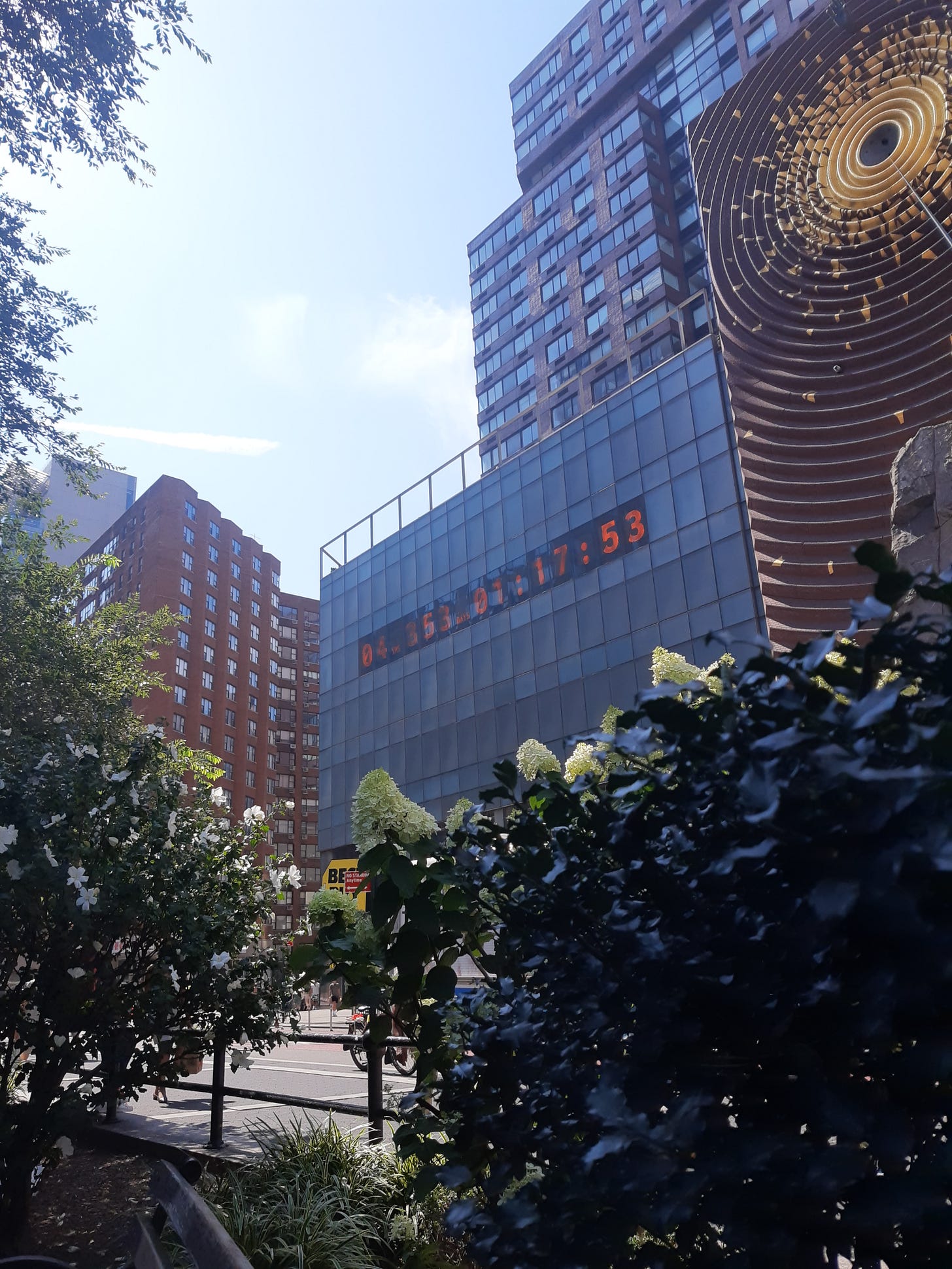
Apparently it is possible for somewhere to be more humid than Toronto in August, and that somewhere is New York City in August. Having grown up on the prairies (IT’S A DRY COLD!) I’ve never quite gotten used to the lung-tightening, soggy suffocation of 90% humidity, even though I’ve lived in the soup of it for a few summers now.
I mention this because at the beginning of the month, my partner and I made a weekend trip to New York. I defended my MFA thesis novel on Zoom at 2 pm, and by 2 am, we were tucking ourselves into the sweet air-conditioning-and-fresh-sheets cocoon of a hotel room. (Actually, at 2 am I think I was blearily buying contact lens solution at a Manhattan 7/11 but whatever.)
Even though we arrived in the middle of the night, it was oppressively hot. In the gap between the plane door and the jet bridge we were hit with air that felt like a flannel blanket. Outside of Penn station, heat was radiating off the concrete even though the sun had long set.
It was a really lovely trip, as relaxing as I’d hoped it would be. It was nice to finish two really big writing projects and then just immediately skip town—a physical distance allowing me to flip fully out of work-mode. We sat in parks, gazed at architecture, saw the brilliantly absurd “Oh, Mary!” on Broadway, I ate the best patty melt that’s ever been made.
But then there was the weather, the ominous backdrop to life these days. Or more than the weather, the climate. Not just the humidity and the 35 degree heat, but the sudden torrential rainstorms and the water coughing out of the storm drains.
We were coming off the recent flooding in Toronto, the cars stranded in the dip of the Don Valley Parkway and the flights grounded as the airport turned into a lake. A tornado touched down the other day. Half the city losing its power. In my neighbourhood, things seemed normal, if a little soggy; friends texted me from the apocalypse thirty minutes away.
So climate change has been pressing on my mind. In New York, we wandered through the Union Square greenmarket. I bought a bundle of soft, undyed wool spun from sheep in the Catskills. The stalls were all piled with plump, colourful vegetables, a platonic ideal of a farmers market. We sat on a bench on the side of the park and looked at the climate clock, looming a story tall across the road. Telling us we have less than five years to limit global warming to 1.5 degrees C.
Living—just making it through the day—feels like it requires a bifurcation of the mind. I move through the world and it seems beautiful, pleasant. Around me nature is active: trees are dropping plump, late-summer fruit, squirrels are squirrelling. New York’s cockroach population is thriving, if the two I almost stepped on on different Manhattan sidewalks are any indication. But behind this screen of normalcy is a pressing, panicky urgency. So much bubbling underneath—guilt about travelling. Guilt about my life feeling unaffected. Fear about what will happen when we don’t stop the inevitable. Fear about what might be coming that we haven’t even thought of yet. And the pain and sadness of what is already happening, and the harshness of the world that I see around me and afar—pain of war, pain of death, pain of poverty, pain of displacement. On and on. The strangeness of experiencing personal joy in a time of collective sorrow. The strangeness of seeing sorrow ignored.
Perhaps reading Kohei Saito’s Slow Down: The Degrowth Manifesto while on vacation is, I don’t know, not the best idea for preserving one’s mental health. But whatever! I would recommend it anyway. Saito’s is the rare book that made me feel the acuteness of climate grief without freezing me in place.
What actions can we take that exist in the space between pacifying ineffectuality and screw-it-all nihilism? Saito’s book, for me, offered a recentering reminder on the necessity of the commons, and collectivism as the answer to many of these struggles.
On our last full day in New York we walked the High Line, the urban park made by reworking the existing out-of-use trail tracks that ran through Chelsea and the Meatpacking district. It seemed like a distillation of these complicated feelings. It’s a beautiful park, a commendable re-use of infrastructure. Still, it’s hard not to see the effects of hypergentrification in the surrounding areas as a result.
In a less-developed section of the park that curls around the edge of the Hudson River, signs were posted to explain the philosophy of the vegetation, which was a cultivation of the “self-seeding” that happened when the once-derelict rail line was left untouched and became overgrown. It reminded me of Saito’s book, in which he argues against both anti-progressivism and the idea that technology can save us. “We cannot solve a problem triggered by capitalism while still preserving capitalism,” he writes. Yet we can appreciate, even harness and use, the technological progress brought by capitalism, he maintains, without capitulating to its growth-only mindset. At any time, Saito points out, we can draw a line in the sand: this is bad, we must retract, we must stop. We can shift towards degrowth rather than growth, to an economy based on use-value rather than capital value. We can refuse zero-sum thinking—cultivate what flourished in the places we left untended. It’s not quite too late.🌳
Writing News

Maybe I glossed over it a little up top, but … I COMPLETED MY MFA! I am officially a master of fine arts. After preparing a defense of my novel and spending way too long trying to format it acceptably as a thesis, I think it’ll be a few months before I can actually look at my novel again.
This is also an exciting month because I’ve moved into the editing phase on my book of essays. It’s starting to sink in that this project will actually be published (August 2025, baby!) and out in the world eventually.
In the meantime, I’ve got a few more exciting things on the go including a forthcoming publication and more workshops with the Toronto Writers Centre … watch this space! :) I’m also hoping to add to my freelance schedule this fall, so if you or anyone you know is looking for editing or proofreading services, let me know! More info is on my website.
Other Links
In my quest to find more avenues for collectivism and stop giving my money to Galen Weston, I’ve been trying out a grocery co-op here in Toronto! If you’re interested, check out Karma Co-Op—they’re doing amazing stuff, but need to increase their membership to keep going. I’d also love to hear suggestions about ways to get involved in collective action—or just what you do to keep the climate grief at bay! Drop me a line.
Speaking of collective action: this piece on reframing “activism” is a great read. “In its very ambiguity the word upholds a dichotomy that is toxic to democracy, which depends on the participation of an active citizenry, not the zealotry of a small segment of the population, to truly function.”
The Breach also has an interesting article on the (depressing) massive contraction of arts funding and weakening of arts institutions, especially in Toronto—but some signs of hope in Montreal.
On Thursday and Friday of this week Staging Palestine is taking place at The Theatre Centre, “a powerful offering of performances, readings and music showcasing Palestinian artists.” Tickets are PWYC and funds go to Fragments Theatre, a cultural centre in the West Bank.




